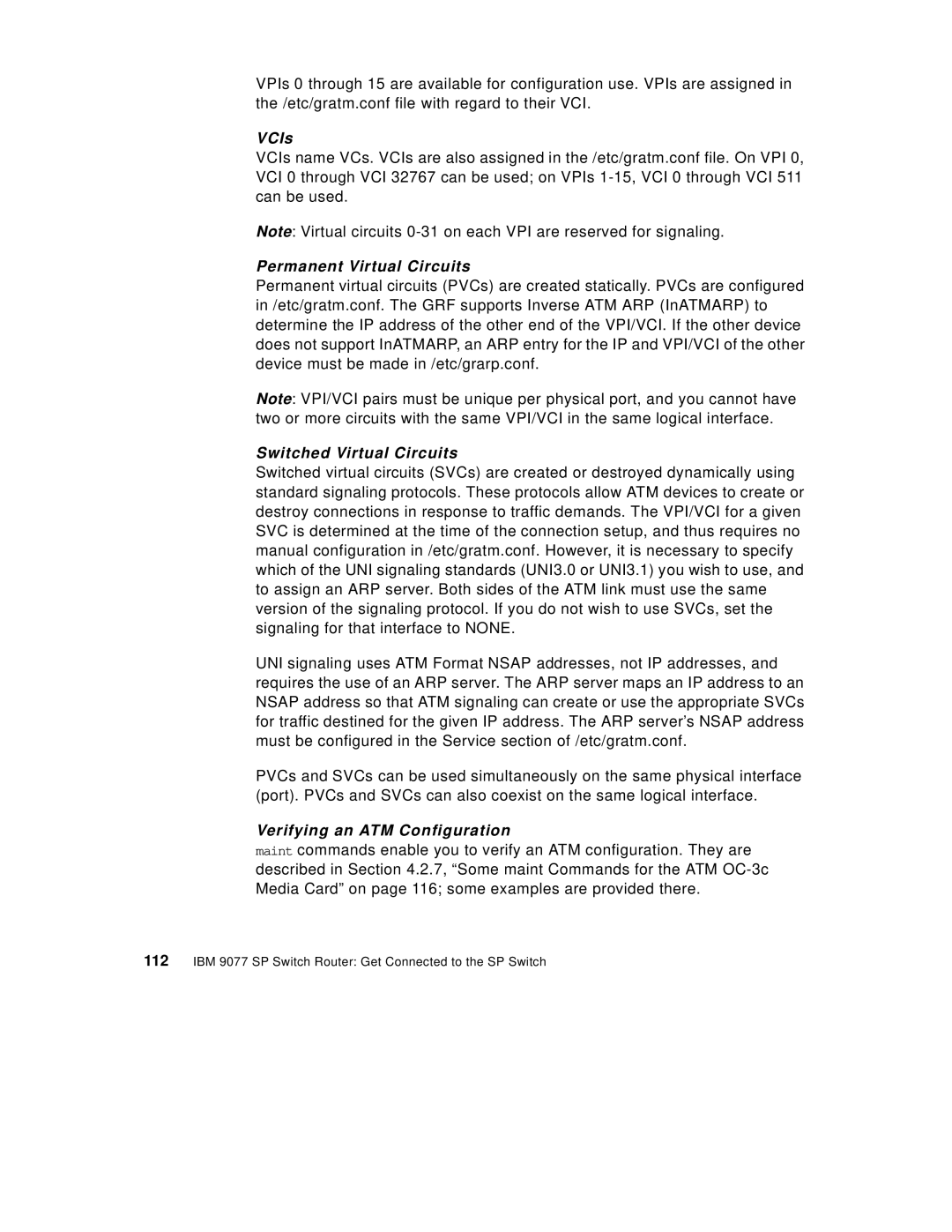VPIs 0 through 15 are available for configuration use. VPIs are assigned in the /etc/gratm.conf file with regard to their VCI.
VCIs
VCIs name VCs. VCIs are also assigned in the /etc/gratm.conf file. On VPI 0, VCI 0 through VCI 32767 can be used; on VPIs
Note: Virtual circuits
Permanent Virtual Circuits
Permanent virtual circuits (PVCs) are created statically. PVCs are configured in /etc/gratm.conf. The GRF supports Inverse ATM ARP (InATMARP) to determine the IP address of the other end of the VPI/VCI. If the other device does not support InATMARP, an ARP entry for the IP and VPI/VCI of the other device must be made in /etc/grarp.conf.
Note: VPI/VCI pairs must be unique per physical port, and you cannot have two or more circuits with the same VPI/VCI in the same logical interface.
Switched Virtual Circuits
Switched virtual circuits (SVCs) are created or destroyed dynamically using standard signaling protocols. These protocols allow ATM devices to create or destroy connections in response to traffic demands. The VPI/VCI for a given SVC is determined at the time of the connection setup, and thus requires no manual configuration in /etc/gratm.conf. However, it is necessary to specify which of the UNI signaling standards (UNI3.0 or UNI3.1) you wish to use, and to assign an ARP server. Both sides of the ATM link must use the same version of the signaling protocol. If you do not wish to use SVCs, set the signaling for that interface to NONE.
UNI signaling uses ATM Format NSAP addresses, not IP addresses, and requires the use of an ARP server. The ARP server maps an IP address to an NSAP address so that ATM signaling can create or use the appropriate SVCs for traffic destined for the given IP address. The ARP server’s NSAP address must be configured in the Service section of /etc/gratm.conf.
PVCs and SVCs can be used simultaneously on the same physical interface (port). PVCs and SVCs can also coexist on the same logical interface.
Verifying an ATM Configuration
maint commands enable you to verify an ATM configuration. They are described in Section 4.2.7, “Some maint Commands for the ATM
